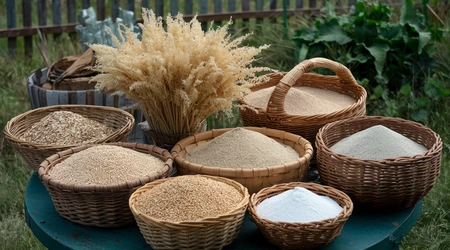
Bread and grain-based products are staples in diets worldwide, providing a significant source of energy through their carbohydrate content. These foods, derived from grains like wheat, rice, oats, barley, and corn, are rich in complex carbohydrates, which serve as the body’s primary energy source. Whole grain options, such as whole wheat bread, brown rice, and oatmeal, are particularly beneficial as they contain all parts of the grain, including the bran, germ, and endosperm. This makes them higher in fiber, vitamins, and minerals compared to refined grains, contributing to better digestion, sustained energy release, and overall metabolic health.
The fiber found in whole grain products is crucial for maintaining digestive health, reducing the risk of constipation, and promoting a healthy gut microbiome. Additionally, consuming whole grains has been linked to a lower risk of chronic diseases such as heart disease, type 2 diabetes, and certain types of cancer. These grains are also a good source of essential nutrients like B vitamins, iron, magnesium, and selenium, which support energy metabolism, immune function, and overall cellular health.
While refined grain products like white bread, pastries, and some cereals are widely consumed, they are typically lower in fiber and nutrients due to processing. Consuming these in moderation and opting for fortified versions can help minimize potential nutritional gaps. Incorporating a variety of whole grains and minimally processed grain-based products into meals ensures a balanced intake of nutrients and energy, supporting overall health and well-being.







